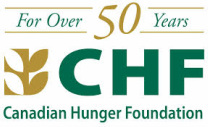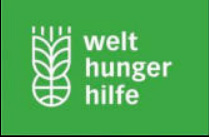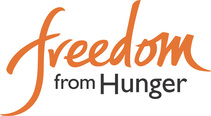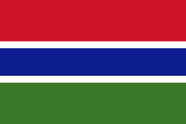National Committees
National Committees Today

Australia: Oxfam Australia
Oxfam Australia was born out of a merger between two leading Australian international development agencies - Community Aid Abroad (est. 1953) and the Australian Freedom from Hunger Campaign (est. 1962)
www.oxfam.org.au
Oxfam Australia was born out of a merger between two leading Australian international development agencies - Community Aid Abroad (est. 1953) and the Australian Freedom from Hunger Campaign (est. 1962)
www.oxfam.org.au

Canada: CHF: Partners in Rural Development
CHF ceased active operations in 2015. It was a non-profit organization dedicated to enabling poor rural communities in developing countries to attain sustainable livelihoods. It was founded in 1961 by The Honourable Mitchell Sharp. Read: A Short History of the Canadian Hunger Foundation
www.chf.ca
CHF ceased active operations in 2015. It was a non-profit organization dedicated to enabling poor rural communities in developing countries to attain sustainable livelihoods. It was founded in 1961 by The Honourable Mitchell Sharp. Read: A Short History of the Canadian Hunger Foundation
www.chf.ca

Germany: Welthungerhilfe
In Germany in 1962, at the initiative of the then German President, Heinrich
Lübke, a German Freedom From Hunger Campaign committee was founded, later to be
renamed "Deutsche Welthungerhilfe."
www.welthungerhilfe.de
In Germany in 1962, at the initiative of the then German President, Heinrich
Lübke, a German Freedom From Hunger Campaign committee was founded, later to be
renamed "Deutsche Welthungerhilfe."
www.welthungerhilfe.de

Ireland: Gorta
The Irish Freedom from Hunger Campaign began in 1960 under the auspices of the Irish Red Cross Society.
In 1965 gorta was founded under the aegis of the Department of Agriculture.
www.gorta.org
The Irish Freedom from Hunger Campaign began in 1960 under the auspices of the Irish Red Cross Society.
In 1965 gorta was founded under the aegis of the Department of Agriculture.
www.gorta.org

Kenya: Kenya Freedom From Hunger Council
Kenya Freedom from Hunger Council was established with the main objective to compliment the Government's efforts in the fight against hunger and malnutrition, after Food Agriculture Organization urged member countries to form local chapter to campaign for food security. Initially the Council was involved in campaigns but it was later recognized that it better to address the problems of food security through long term interventions. The main interventions used by the Council are community based crop and livestock development, water for livestock and household, community capacity building and linkages with local institutions.
Kenya Freedom from Hunger Council was established with the main objective to compliment the Government's efforts in the fight against hunger and malnutrition, after Food Agriculture Organization urged member countries to form local chapter to campaign for food security. Initially the Council was involved in campaigns but it was later recognized that it better to address the problems of food security through long term interventions. The main interventions used by the Council are community based crop and livestock development, water for livestock and household, community capacity building and linkages with local institutions.

United States: Freedom From Hunger Foundation
Freedom From Hunger began as Meals for Millions (est. 1946), the organization that developed and introduced Multi-Purpose Food, a high-protein food supplement. In 1960s, M4M crossed paths with the UN FFHC committee, founded in 1960 at the behest of President Kennedy. In 1979 the organizations merged to become the Freedom From Hunger Foundation.
www.freedomfromhunger.org
Freedom From Hunger began as Meals for Millions (est. 1946), the organization that developed and introduced Multi-Purpose Food, a high-protein food supplement. In 1960s, M4M crossed paths with the UN FFHC committee, founded in 1960 at the behest of President Kennedy. In 1979 the organizations merged to become the Freedom From Hunger Foundation.
www.freedomfromhunger.org
We are seeking further information on all national committees. Below are countries which may have active committees, but we can't confirm yet. We welcome information on these or any other national committees or their affiliates:
Ceylon
The Gambia: Freedom From Hunger Campaign (Initial operations, 1969)
Cape Point, Bakau
Sri Lanka
Freedom from Hunger Campaign Board (FFHCB)
Ceylon
The Gambia: Freedom From Hunger Campaign (Initial operations, 1969)
Cape Point, Bakau
Sri Lanka
Freedom from Hunger Campaign Board (FFHCB)


